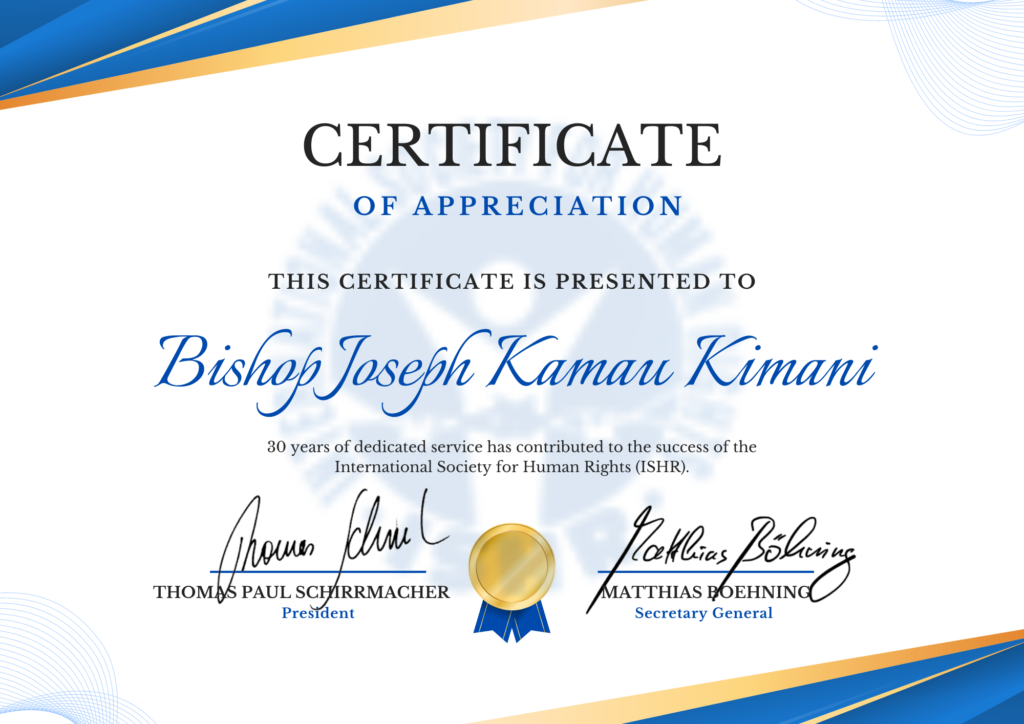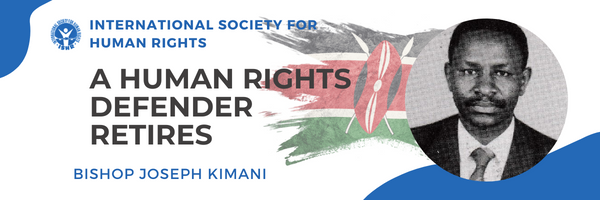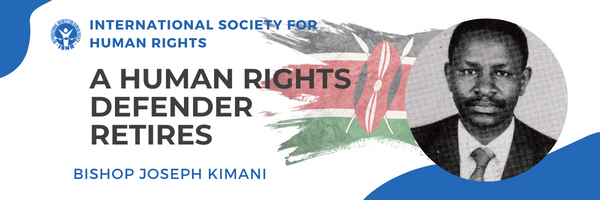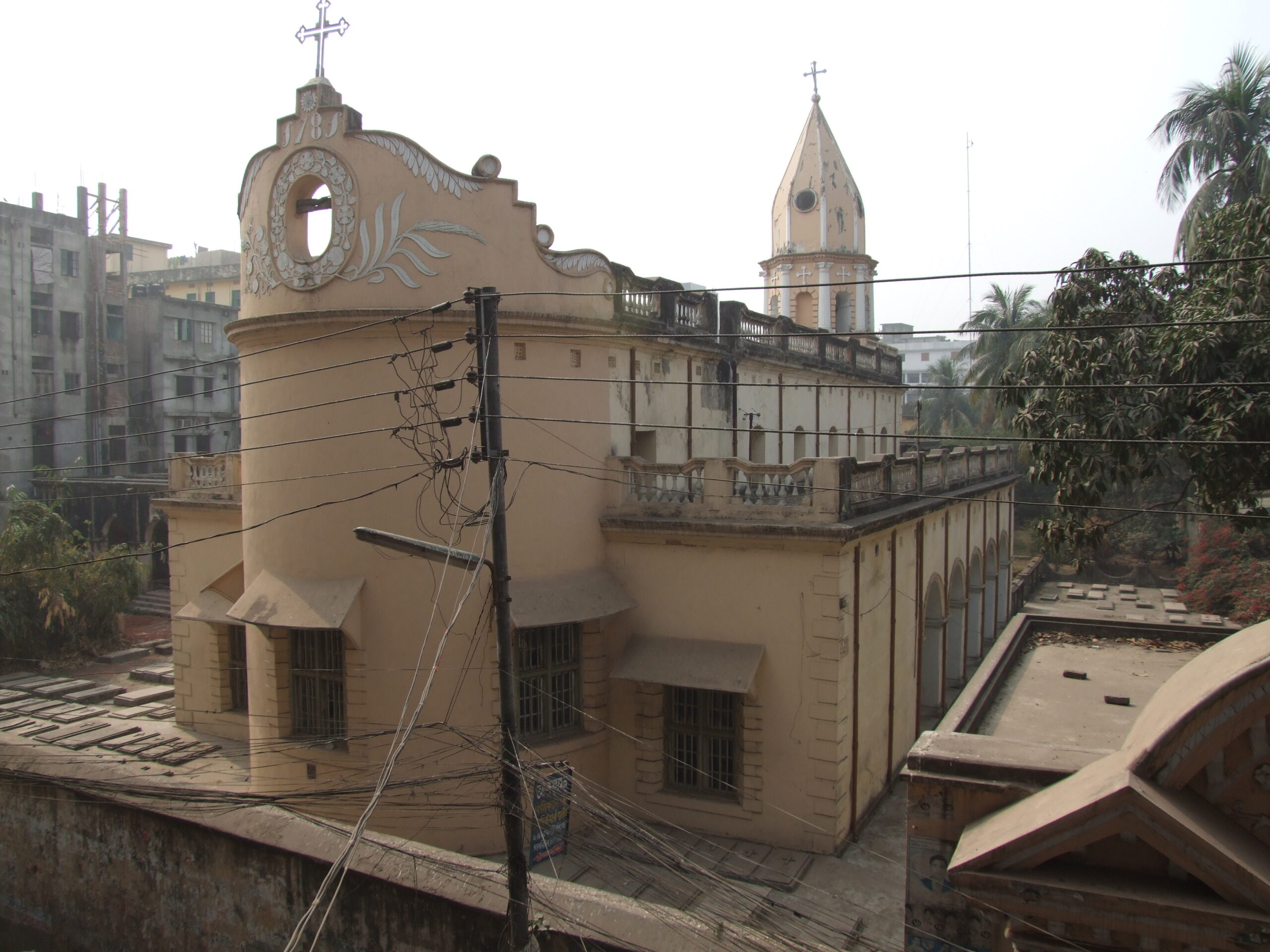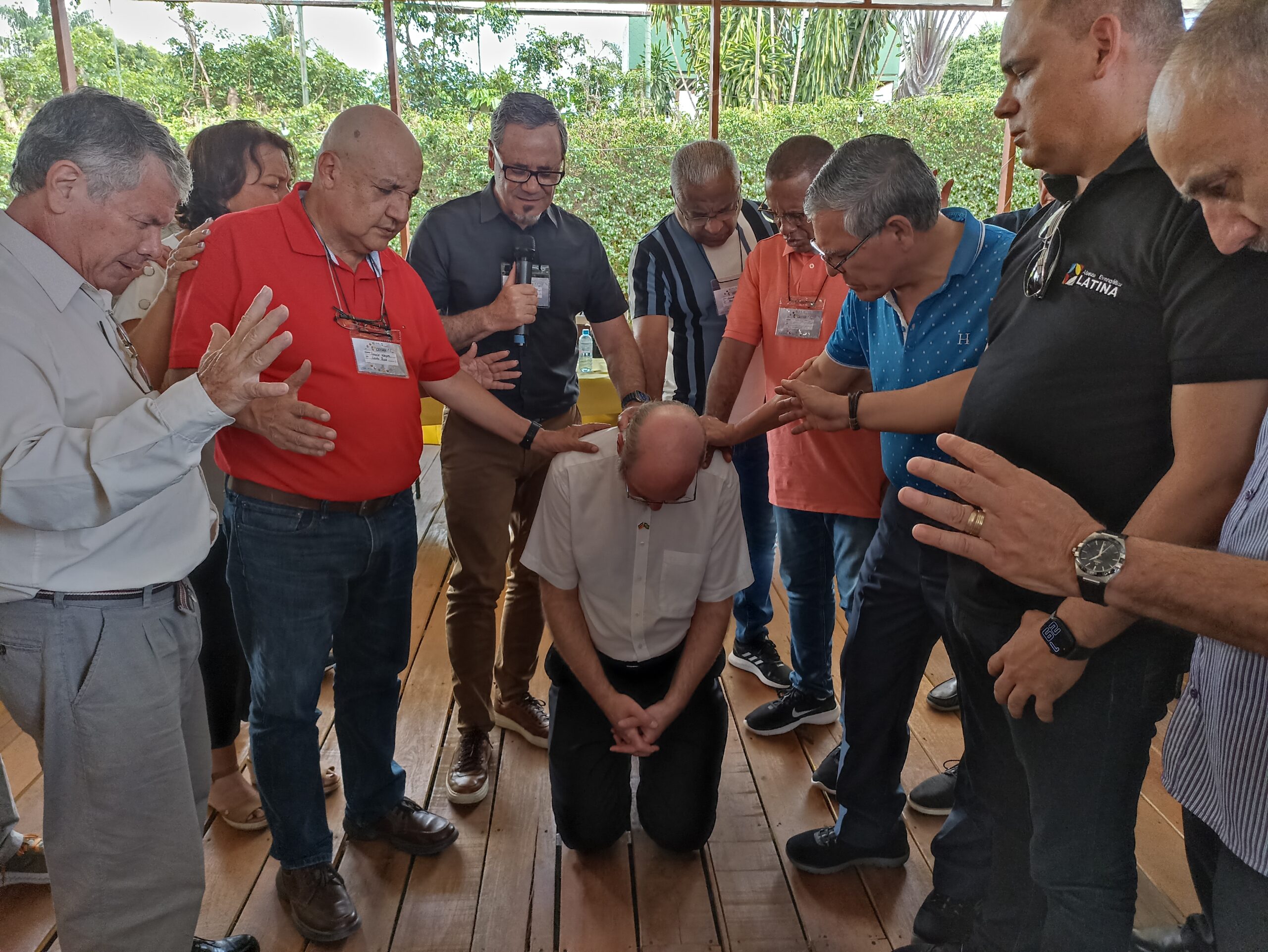ISHR’s long-time representative in Kenya, Bishop Joseph Kimani, is retiring as of September 2022. The ISHR thanks the former Kenyan Member of Parliament for the Nakuru North Region for the Forum for the Restoration of Democracy (FORD-Asili) and Bishop of the Kenya National Evangelical Alliance for his decades of commitment to human rights in Kenya and would like to use this article to point to some shared milestones.
Bishop Kimani had been IGFM’s representative in Kenya since September 1993 and became known to the global network of ISHR in particular through his reporting around the events in Kenya in December 1993. In January 1994, in the newspaper “Menschenrechte” (“Human Rights”) of the German section of the ISHR, he reported on the widespread arrests in Nakuru and the surrounding area, which were mainly directed against opposition-minded Kenyans.
“The town itself [Nakuru; editor’s note] is 90% supportive of the opposition, and the public believes that the arrests were to punish the town,” he wrote in his article. “President Moi’s residence, Kabarak Farm, is only 6 kilometers from Nakuru town. It is very uncomfortable for him to know that he has few political supporters in this area. The Minister of Home Affairs, Francis Lotondo, confirmed in Parliament on 9 December that the prisons were badly overcrowded but then went on to tell us opposition MPs that these prisons would be our next home.”
In fact, Bishop Kimani was not only a reporter of the tensions between President Moi’s party (Kenya African National Union, KANU), which won the majority of seats in parliament after Kenya’s multi-party elections in December 1992, and the three opposition parties united in the Forum for the Restoration of Democracy (FORD). He also suffered reprisals directly against his person: He was arrested and detained in October and December 1993 for criticizing official government policies. He wrote about this in January 1994:
“When I tried to exhort arap Moi to respect human rights last year, I was arrested and detained in inhuman conditions. My cell was barely two by two meters. There was no blanket, very little to eat and lots of vermin. That’s why I fell very ill.”
The ISHR stood by Bishop Kimani in the disastrous situation at the time and sent many letters of protest to the government of Kenya and Kenya’s embassies abroad. In particular, the then Secretary General Robert Chambers, together with other ISHR groups and the United Nations Commissioner for Refugees, was very committed to the liberation of Bishop Joseph Kimani. The latter expressed his gratitude for the moral and practical support and wrote:
“I thank the ISHR because it has done a lot for Kenya and especially for me.”
But – as usual for Bishop Kimani – he did not stay with himself for long and immediately added:
“I would like to remember the fates of other political prisoners in Kenya who are now suffering in their cells. Among them are another four priests. There is no medical care. The hospitals in Kenya are empty because there are no medicines. (…) I hope you will not forget us.”
Bishop Kimani’s extraordinary commitment is not forgotten, and this article is intended to help keep the memory of his important work alive beyond the time of his retirement. Among other things, because he embodied an important ISHR principle in the next chapter of his work: Not stopping at political work for human rights, but also supporting individual people very practically and upholding human rights through humanitarian aid. Bishop Kimani was no longer willing to stand idly by and watch the suffering of children as a result of the displacement and resettlement measures under arap Moi since 1991, in which countless children lost their parents. He bought a plot of land in Bahati, a village about 180 kilometres from Nairobi, and built an orphanage and a school on it. In April 1999, he wrote to the German section of the ISHR:
“We started with 15 children six years ago, now we are already looking after sixty children; we need more space and help.”
Rainer Franz from Marburg, a member of the German ISHR section, visited Bishop Kimani’s project at that time to get an idea of the work on the ground. He returned with deep impressions and a lot of ideas and wishes and immediately planned the next longer stay in Bahati. He reported in the newspaper “For Human Rights” of the German section of the ISHR:
“Bishop Kimani has put his savings into the orphanage and the school. His eldest daughter is a teacher, she works without salary with 64 children! Spontaneously I bought 64 notebooks and pencils and a football so that the essentials are there. (…) In everything, Bishop Kimani tries to give people support and a meaning in life. My personal impression: everyone is very, very committed, they want to get something going on their own.”
With Bishop Kimani, a passionately committed human and human rights defender is retiring. As ISHR, we wish him all the very best in his new phase and can only hope that his story will inspire other human rights defenders in Kenya and other countries around the globe to take the personal risk of standing up for human rights in their contexts.
We are glad and grateful that in Kenya we have been able to recruit Wanjeri Nderu, a human rights defender of the younger generation, who in her own way, with her topics and focus areas (see article about one of her current projects in this newsletter), continues the important work of defending human rights in Kenya.
Matthias K. Boehning, ISHR Secretary General
